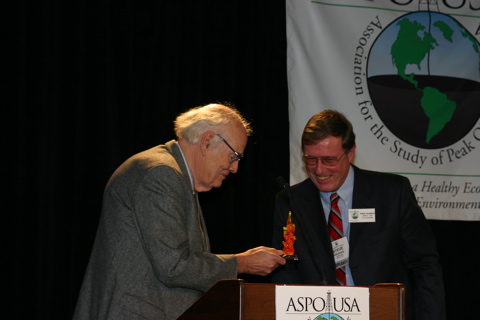Announcement--Boulder Valley Conference And Relocalization Resource Expo
Posted by Dave Cohen on January 9, 2006 - 8:55pm
On January 14, Boulder Valley Relocalization will sponsor Going Local! Preparing for the Accelerating Energy Crisis (pdf, press release). This two day event is intended
to increase community preparedness for the challenges and opportunities of the energy crisis. Through this event the group plans to inform citizens about options for preparing for near-term disruptions and to encourage participating in the strategic planning process for achieving long-term community self-reliance in energy, food and economy.
On Friday evening January 13th, a number of films will be shown at various locations in Boulder including The End of Suburbia and Powerdown: Options and Actions for a Post Carbon World, a new video dvd based on Richard Heinberg's book of the same name. See here for more details.
Saturday January 14th will be an all day event hosted at the UMC Glenn Miller Ballroom (the student union) at The University of Colorado at Boulder.
This is your chance to hear Al Bartlett ("what is an exponential function") who received one of the first M. King Hubbert Awards at ASPO-USA (from co-founder Steve Andrews, picture below courtesy of Stuart).

You can also see a complete version of Megan Quinn's film about Cuba. Excerpts from this film were well-received by viewers at ASPO-USA.
Contact information can be found in the press release or at the Boulder Valley Relocalization website (linked in at the top). I'll be there and I always like to meet fellow TOD contributors in person. So if you're in the Rocky Mountain area or just traveling through, I hope you can make it!
Saturday January 14th will be an all day event hosted at the UMC Glenn Miller Ballroom (the student union) at The University of Colorado at Boulder.
Scheduled morning keynote speakers include Julian Darley, author of High Noon for Natural Gas: The New Energy Crisis and founder of Post Carbon Institute and Global Public Media; and Boulder's own Dr. Albert Bartlett, Professor Emeritus of Physics, University of Colorado....Here are the links for Julian Darley's Global Public Media and Post Carbon Institute.
A highlight of the day will be the premiere of "The Power of Community: How Cuba Survived Peak Oil," a documentary film still in production. Megan Quinn, the film's co-producer and Outreach Director of Community Service, Inc. in Yellow Springs, Ohio, will present the film and deliver the final keynote about the importance of community and the relevance of Cuba's response to a nationwide energy crisis....
This is your chance to hear Al Bartlett ("what is an exponential function") who received one of the first M. King Hubbert Awards at ASPO-USA (from co-founder Steve Andrews, picture below courtesy of Stuart).

You can also see a complete version of Megan Quinn's film about Cuba. Excerpts from this film were well-received by viewers at ASPO-USA.
Contact information can be found in the press release or at the Boulder Valley Relocalization website (linked in at the top). I'll be there and I always like to meet fellow TOD contributors in person. So if you're in the Rocky Mountain area or just traveling through, I hope you can make it!




While it seems like it would be very interesting to attend, my inclination is to say that there would be something very wrong to get on a plane (using fuel in the process) to attend such a meeting.....
Yeah, you could argue that the plane would be flying there anyways, but that argument seems a bit weak...
Richard Heinberg will be speaking on the 10th, tomorrow, at the Eugene, Oregon, Hilton, sponsored by the Post-Carbon Outpost of Eugene at 7pm. Further details here: http://www.postcarbon.org/node/1686
It comes at an interesting time, at least for area. For decades the Denver metro area has been sprawling in a way that makes Los Angeles look good. Vast fields of "ranchettes" are appearing all the way from Fort Collins to Colorado Springs. Boulder has, since the late 60s, been an exception by limiting urban expansion, creating greenbelts, and increasing density population steadily over time.
A few years ago, Colorado voted down an Oregon-style law to curtail urban sprawl after a massive lobbying effort by the profoundly unsustainable development industry. We're now continuing to suffer the consequences of that vote.
In and around Boulder, there seems to be growing interest in peak oil. At the local Boulder Bookstore, the "recommendations" section had a shelf full of titles on the topic. Still, most of the time, most people haven't heard of peak oil and you see as many SUVs as bicycles around here.
Bottom line is Boulder can not become "localized" so long as its government employment is higher than the national average.
In other words, Boulder would have increasing trouble in EARNING its keep in a free market. Since they increasingly depend on government, they can afford to waste resources on inefficient transport and energy production schemes.
The Boulder economy needs only to be politically correct rather than competitively efficient.
But what think you when you extrapolate your criticism to the US as a whole?